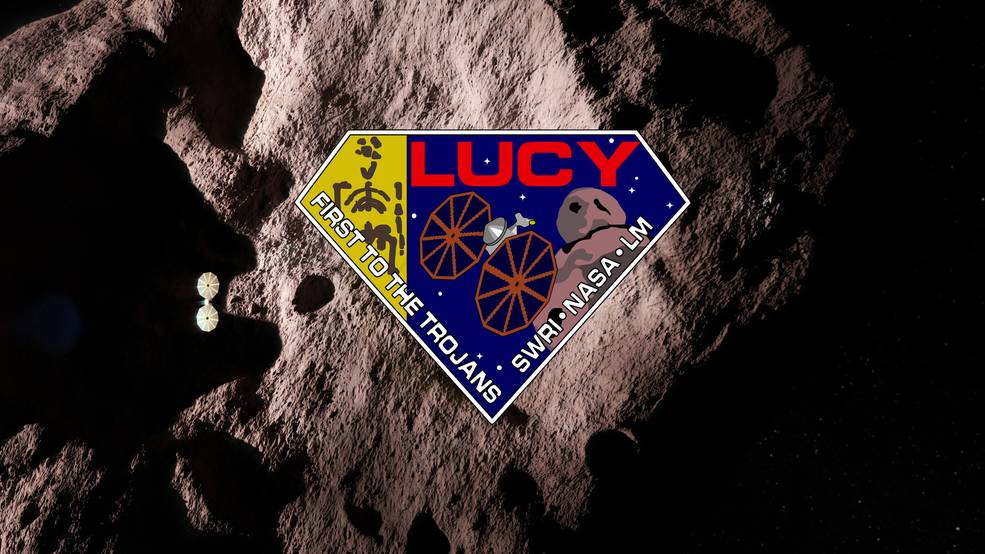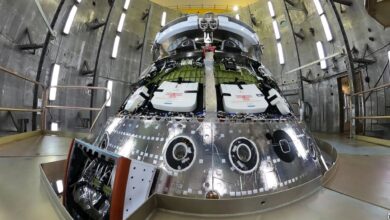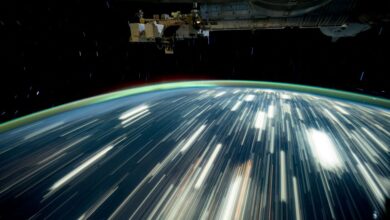Career Spotlight: Technologist (Ages 14-18)

What does a technologist do?
Technologists are professionals who research, develop, and test emerging technologies. They also find useful ways to put new technologies to work. A technologist is an expert in a specific type of technology, often within a specific field. Many industries rely on innovations developed by technologists. Some of these include aerospace, research, manufacturing, healthcare, and information technology.
NASA technologists make use of technological advancements to improve NASA’s capabilities and better meet the needs of its missions. They also oversee how technologies developed by NASA can improve life on Earth through commercial products. These products are called spinoffs. For examples of how NASA shows up in your everyday life, visit: https://spinoff.nasa.gov.
What are some technology careers at NASA?
Instrument scientist: Works to improve or develop instruments that collect data. In aerospace, an instrument is a sensor or other device that takes measurements or gathers scientific information. This role may include working with other specialties to design, create, and test scientific instruments.
Data scientist: Uses computer science to create tools that manage data. Some of the tasks a data scientist might perform include developing predictive models, machine learning algorithms, or software to extract useful information from large sets of data.
Information technology (IT) specialist: Designs, maintains, implements, and protects IT systems across the agency. Develops software, manages IT projects, and develops applications to support both organizational and mission operations.
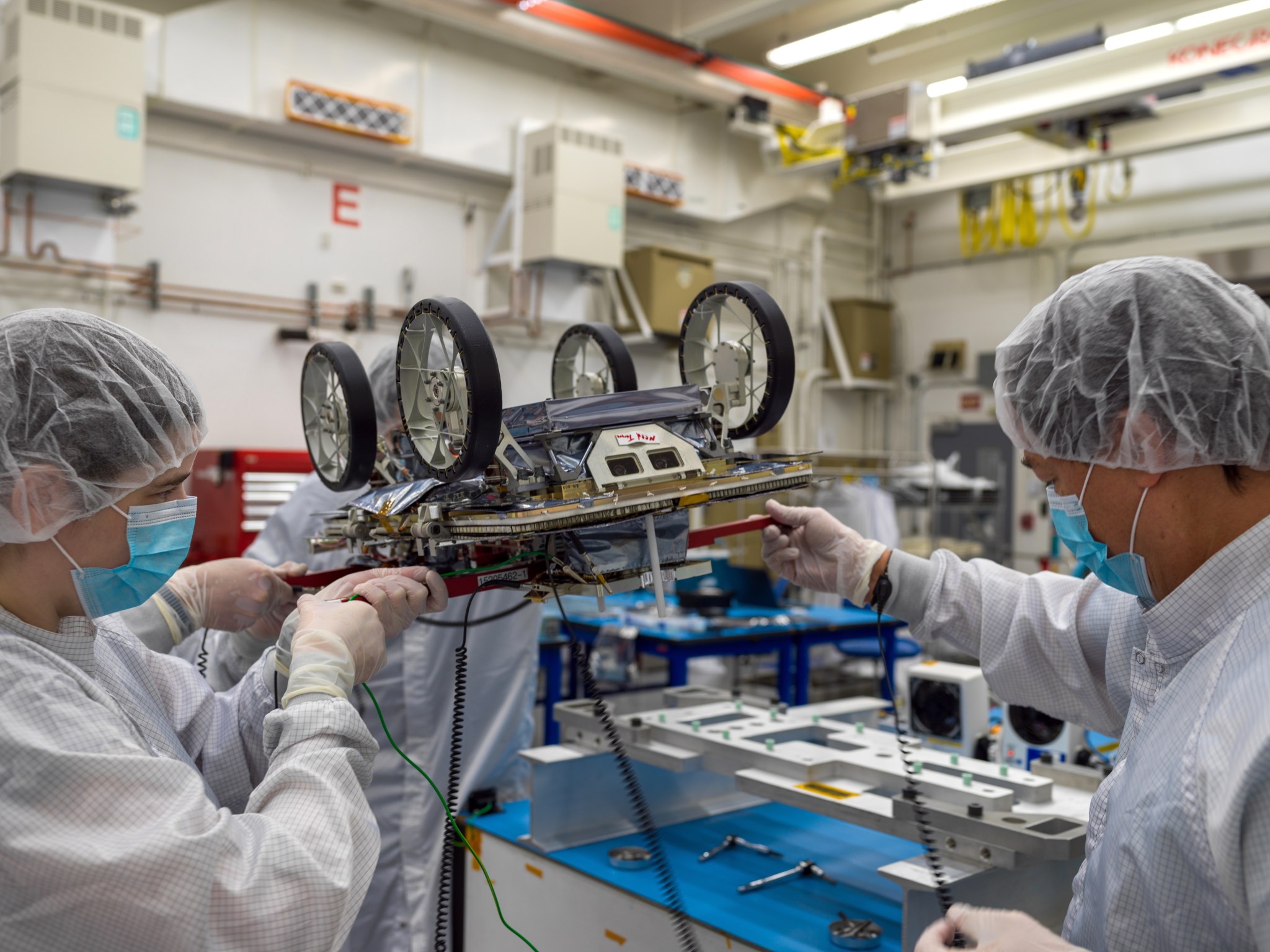
One of three small lunar rovers that are part of a NASA technology demonstration called CADRE (Cooperative Autonomous Distributed Robotic Exploration) is prepared for shipping in a clean room at the agency’s Jet Propulsion Laboratory in Southern California.
NASA/JPL-Caltech
How can I become a technologist?
There are many different types of careers in technology, and the requirements vary. While you’re in high school, explore the possibilities and learn about the specialties and roles that will fit your interests. Then, investigate the academic path and experience you’ll need to eventually be hired into those roles. Current job openings, guidance counselors, and mentors can shed light on the types of certifications or degrees required. With this information, you can begin planning for the skills and education you’ll need.
It’s important to remember that technology is always advancing. Even after you’ve launched your technologist career, a “lifelong learning” mindset will help you keep up with new innovations and skills.
How can I start preparing today to become a technologist?
Start growing your technology skills today with hands-on activities created by NASA STEM. Looking for something more involved? Many of NASA’s student challenges, competitions, and activities offer authentic experience in aerospace technology, computer science, and more.
Students aged 16 and up who are U.S. citizens are eligible to apply for a paid NASA internship. Interns work on real projects with the guidance of a NASA mentor. Internship sessions are held each year in spring, summer, and fall; visit NASA’s Internships website to learn about important deadlines and current opportunities.
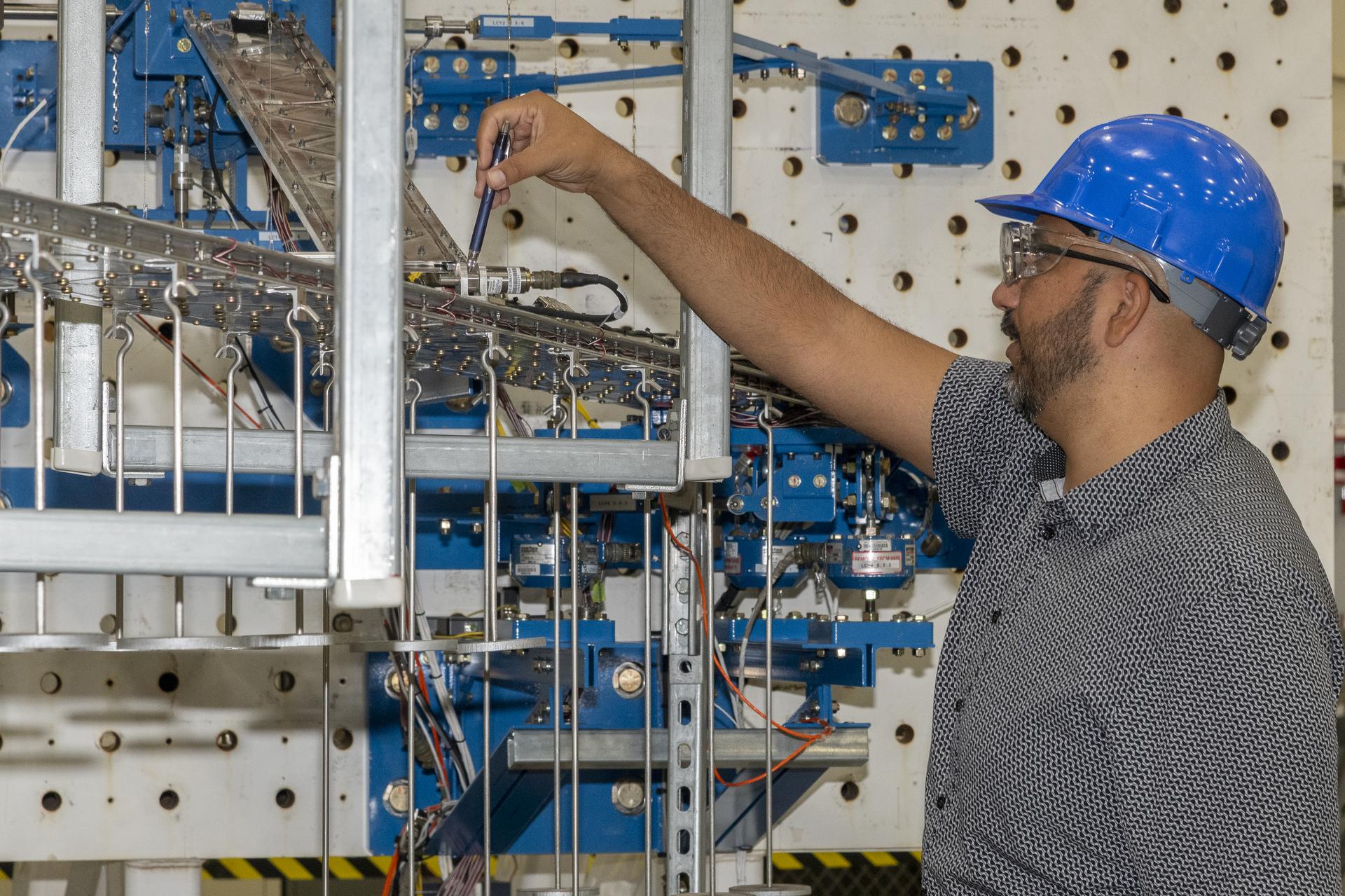
Frank Pena, test director, checks on the 10-foot Mock Truss-Braced Wing at NASA’s Armstrong Flight Research Center in Edwards, California. The aircraft concept involves a wing braced on an aircraft using diagonal struts that also add lift and could result in significantly improved aerodynamics.
NASA
Advice from NASA technologists
“Think about your personal interests and passions, and also the impact you’d like your work to have. What do you feel personally interested in when it comes to science and technology? Is there a problem that you think is very important for our society to solve? Often there is a research or technology field that can combine those two things!” – Olivia Tyrrell, NASA research engineer
What do you feel personally interested in when it comes to science and technology?

Olivia Tyrrell
NASA Research Engineer
“If you like to create things or find solutions to problems, working in technology is a great choice. Scientists identify problems, engineers solve problems, but ultimately, we need to create new technologies, new things, new gadgets. Technologists are building the next generation toolbox for engineers and scientists to pull from, enabling everyone to solve problems in more effective and innovative ways. (Technologists invent things… what’s cooler than that?!)” – Kristen John, technical integration manager for lunar dust mitigation

